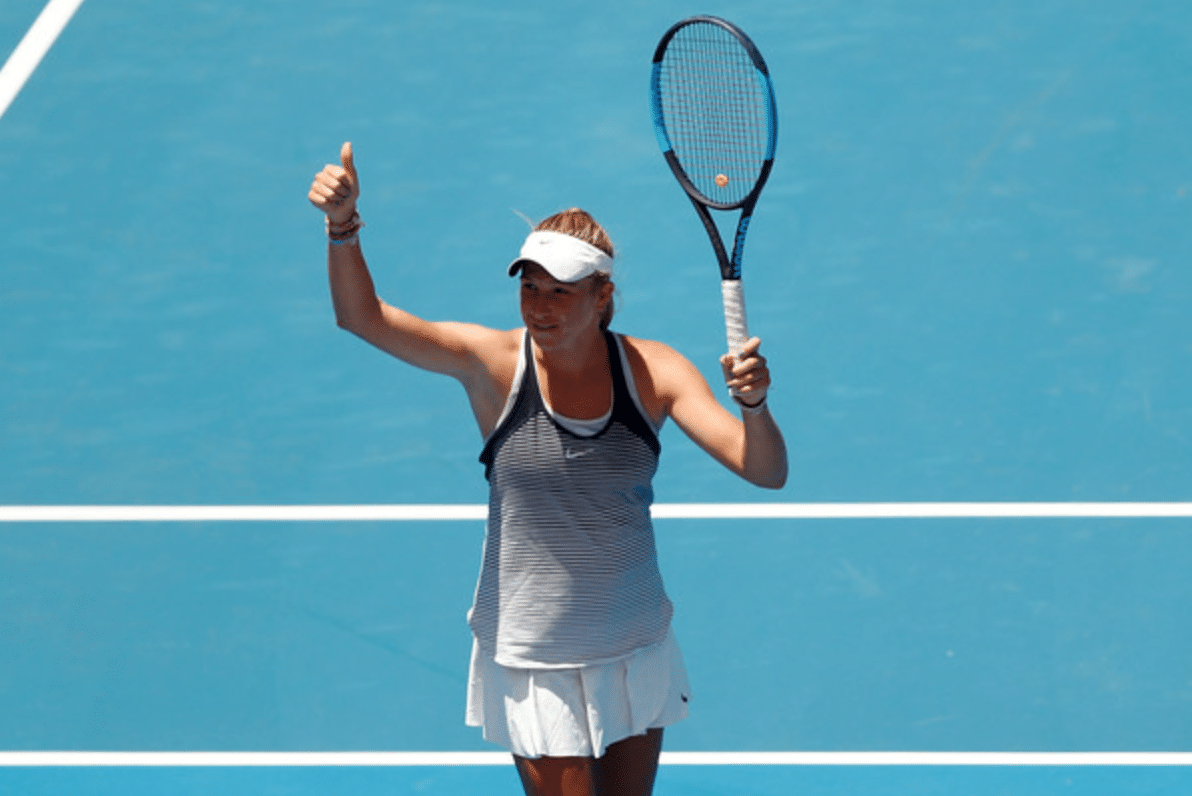It might be stating the obvious but in most cases, young teens feel pressured into posting pictures of themselves (maybe not in the most professional light) to gain instant attention. It’s all about ‘likes’ and friends commenting on the way they look. This instant gratification might make them feel amazing in the short term, but what most young athletes don’t realize is that what is posted up on social media is there forever. Even if you delete the post, picture, comment, Snapchat etc it can always be found. As coaches, we interact with young tennis players and one thing we hear about a lot is their use of social media.
One of the biggest concern for young tennis players is, rightly or wrongly, reputations are usually formed quickly and often times there is no changing it. Social media posts or the way someone interacts on social media platforms can spread around very quickly and can really hurt an athlete’s future.
As a coach, I spend a lot of time assisting my players with the recruiting process. I’ve spoken to many college coaches and recruiting agencies, and they have all told me exactly the same thing:
Before any college offers a potential player a scholarship to their school they do a very thorough check of each potential recruit they are looking at, this means they go through their social media accounts with a fine-toothed comb.
On a recent trip to America, I witnessed first hand how deleted posts or photos were found very easily, and it was a big learning curve for me. It made me realize how important it was for athletes aspiring to play college or professional tennis to be aware of the ramification they will face if they use social media inappropriately. Don’t get me wrong, it’s an excellent tool for promotion, networking and connecting but ONLY if it is used in a professional manner. It’s not just tennis opportunities that might be lost, players also need to consider future employers who may also be looking into the past social media habits prospective employees. It’s time for young athletes and their parents to become more aware of what is actually being posted and make sure it’s portraying players in a positive light. Posting pictures just to get “likes” or instant attention or sharing inappropriate photos or comments is a very dangerous idea and here’s why!
See the below article written by Kara Hill for www.myrecuitingsolutions.com
In the last 48 hours, my blog post has gone viral. I am humbled and grateful you are here reading this story. Many people have requested more information about what the athlete had posted on her account to result in losing a scholarship. She was in multiple images where alcohol was in the background, and many of her friends used profanity throughout her account. While this may not be something that is offensive to everyone, the reality is she lost her scholarship because the coach didn’t feel she would be a good representative of the institution.
I work with female athletes and I specialize in girls volleyball. Many emails and comments have come to my attention drawing comparisons about how boys and girls are treated differently. My passion is educating young women how to navigate successfully through the recruiting process. I love being a support to my clients. I am not here to pass judgment on the decisions college coaches make when it comes to their program. It’s important for you to understand that the college coaches livelihood is on the line. While you may not agree, they are entitled to make the decisions they feel are in the best interest of the program.
What athletes have to remember is it’s not what they think is appropriate it’s what the people who are offering them sponsorships, scholarships, financial assistance think is appropriate! Athletes can benefit from creating their own “BRAND” as an aspiring athlete in a positive way.
A perfect example of a professional Facebook page is of young Aussie female professional player Ellen Perez. She has a great Facebook page that is dedicated to her tennis and she really has a professional approach to what she posts. When you look at Ellen’s Page you understand why she is really improving as a tennis player, she has a great approach on and off the court. Ellen always conducts herself in very respectful and professional way. GREAT JOB ELLEN 
Ellen is someone I have had a lot of my young female players look at and take notes on how she manages herself on and more importantly off the court. She has become a very positive role model (even if she didn’t know it) to a lot of up and coming female players not just through her tennis but in the way she conducts herself online also. Many junior players really admire her professionalism.
Just remember being a professional tennis player or college player isn’t forever and eventually, many college athletes will have careers outside of tennis. By maintaining a professional and respectful approach to everything you do on and off the court you will be remembered in a very professional and positive light which will open up a lot of opportunities at the end of your tennis career.
By John Thompson
• Current tennis Director of the Harrington Grove Country Club (South Western Sydney)
• Head Coach of the Elite Squad for the NSW Hardcourt Tennis Association
• Former NSW State Coach • Former traveling Coach for Tennis Australia
• Worked at the John Newcombe Tennis Academy, USA
• Spent Time with Steve Denton and Bob McKinley coaching at Texas A@M University

